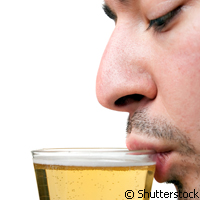Binge drinking and its adverse impact on memory
Does alcohol consumption affect our ability to learn verbal information? New research has found a connection between binge drinking and poorer verbal declarative memory - a form of long-term memory. The study, presented in the journal Alcoholism: Clinical & Experimental Research, shows how our hippocampus is particularly sensitive to the neurotoxicity of alcohol during its development. Experts say the hippocampus is crucial for our development of learning and memory. Investigating binge drinking and university students, researchers from Spain and the United States say binge drinking puts a toll on a person's verbal declarative memory. 'In northern European countries, there is a strong tradition of a sporadic, drunkenness-orientated, drinking style,' says Dr María Parada of the Universidade de Santiago de Compostela in Spain, the lead author of the study. 'In contrast, countries on the Mediterranean coast, such as Spain, have traditionally been characterised by a more regular consumption of low doses of alcohol. In recent years, the pattern of binge drinking among young people has become more widespread throughout Europe, hence the growing concern about this issue.' Dr Marina Rodríguez Álvarez, also from the Universidade de Santiago de Compostela, highlights the significance of investigating alcohol's effects on the hippocampus; in animal studies, this region seems to be sensitive to the neurotoxic effects of alcohol. Ultimately, there is a strong connection between this structure and memory and learning. 'In other words, binge drinking could affect memory of young adults, which might affect their day-to day lives,' Dr Álvarez says. Dr Parada goes on to say, 'Our interest in studying the effects of binge drinking patterns on declarative memory results from the well-established role of the hippocampus - a small seahorse-shaped brain structure located in the medial regions of the cerebral hemispheres - in this cognitive function. Both animal studies as well as some neuroimaging studies in humans have shown the hippocampus to be particularly vulnerable to the effects of alcohol, so we wondered whether hippocampus-dependent learning and memory could be affected by heavy episodic drinking.' The researchers assessed 122 university students in Spain, aged between 18 and 20, and split into 2 groups: binge drinkers and non-binge drinkers. 'Our main finding was a clear association between binge drinking and a lower ability to learn new verbal information in healthy college students, even after controlling for other possible confounding variables such as intellectual levels, history of neurological or psychopathological disorders, other drug use, or family history of alcoholism,' Dr Parada says. 'We are currently carrying out a longitudinal study of these young people, and collecting information on their academic achievements, so we hope to be able to answer this question more definitively in the near future.' Adds Dr Álvarez: 'These results should be taken into account by parents, clinicians, university administrators, and also governments because it is vital to address all that surrounds the brain's development in our adolescents and young adults.'For more information, please visit:Universidade de Santiago de Compostela:http://www.usc.es/Alcoholism: Clinical & Experimental Research: http://www.wiley.com/bw/journal.asp?ref=0145-6008(opens in new window)
Countries
Spain



